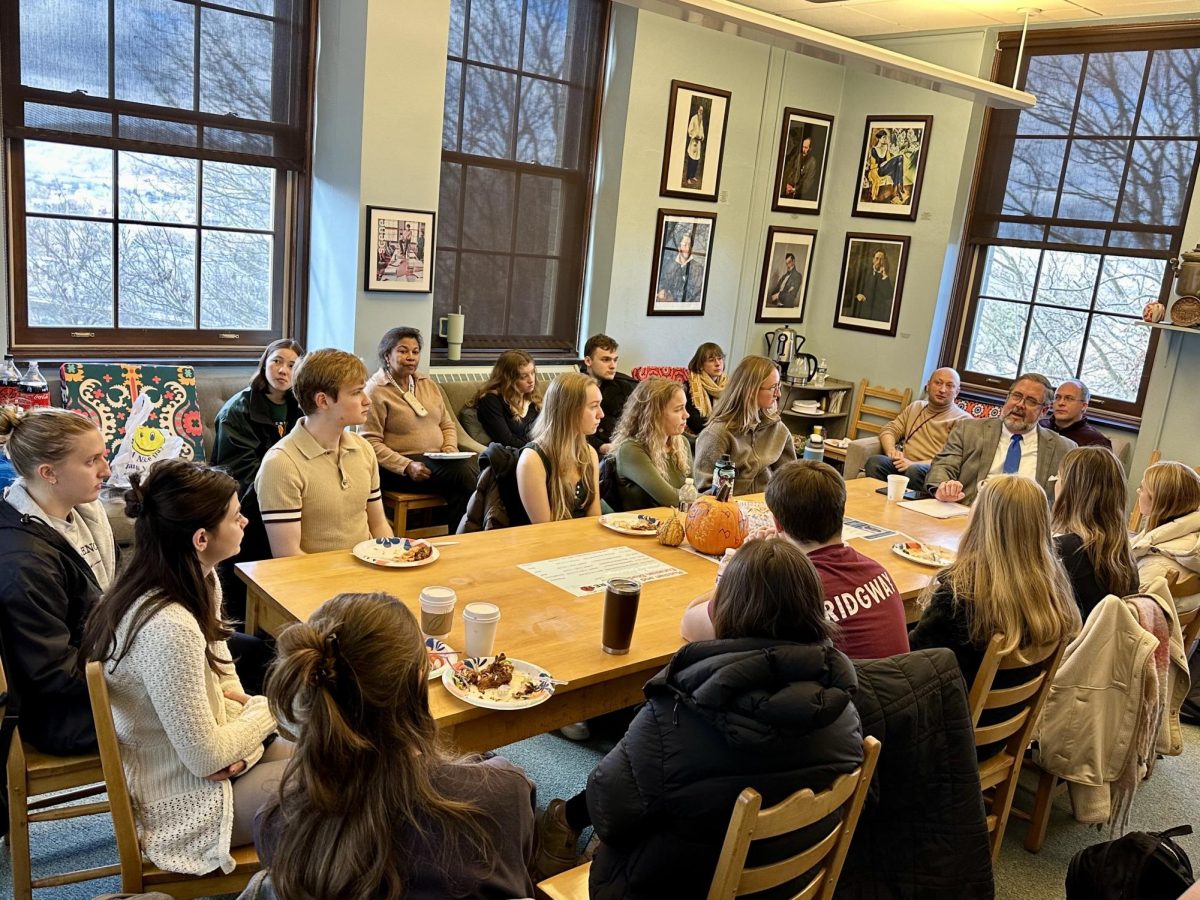Colgate University hosted Lisa Miller, professor of psychology at Columbia University’s Teachers College and founder of Columbia’s Spirituality Mind Body Institute, on Wednesday, April 3, to discuss the intersection between spirituality and mental health.
Drawing from her acclaimed books, “The Spiritual Child” and “The Awakened Brain: The New Science of Spirituality and Our Quest for an Inspired Life,” Miller discussed the innate aspect of spirituality, comparing it with the environmental transmission of religion. Her research showcased the impact of spirituality on mental well-being, emphasizing its role in shaping resilience and fostering positive coping mechanisms.
Miller explained the neurobiological underpinnings of transcendent relationships, highlighting the neurological benefits of sustained spiritual practices. Her research indicates that individuals who cultivate sustained spiritual practices exhibit thicker cortices in areas associated with perception, reflection and orientation. Miller explained that these areas that are thicker in spiritual people are thin in people with recurrent depression. These findings suggest that spirituality serves as a protective factor against depression and other mental health challenges.
“Sustained spiritual life changes us and helps us in our life. We found that when you walk a spiritual walk, when you pray, when you meditate, you start to get a new normal. You have a new set point,” Miller said. “The spiritually-engaged brain vibrates at the wavelength of nature.”
Miller further explained the role of spirituality in what she termed the “diseases of despair,” referencing conditions such as isolation, anxiety, depression and addiction. In response to these challenges, Miller emphasized the importance of cultivating spiritual resilience as a means of overcoming adversity. She showed that religious and spiritual practices can be a source of hope and strength, helping people to find their inner peace.
Miller underscored the importance of integrating spirituality into clinical practice, advocating for a holistic approach to mental healthcare.
“A mental health field minus spiritual core makes no sense,” Miller said.
Miller offered insights into integrating spirituality into clinical practice. She emphasized the importance of collaboration between mental health professionals and spiritual leaders. Miller also advocated for spiritually integrated psychotherapy, which incorporates spiritual practices into therapeutic ones as a means of addressing the holistic needs of individuals.
Sophomore Sara Wilson highlighted Miller’s ability to connect with the audience on a deeply human level.
“Miller spoke to all of us on a very accessible human level that I think we could all resonate with very deeply,” Wilson said. “I really appreciated the refreshing undertone of humility in an academic lecture.”
Sophomore Nicole Hernandez attended the talk and was fascinated by Miller’s findings.
“Miller’s lecture about spirituality was incredibly insightful to the way the spirit-body connection manifests,” Hernandez said. “What I found most interesting is the vibrational frequencies that radiate from our cerebral cortex and the correlation between that frequency and spiritual transcendence and oneness to the world.”
Miller challenged attendees to consider how they can nurture their own spiritual well-being and support others on their spiritual journeys. Her lecture emphasized the transformative power of spirituality in promoting mental health and cultivating resilience in the face of life’s challenges.













